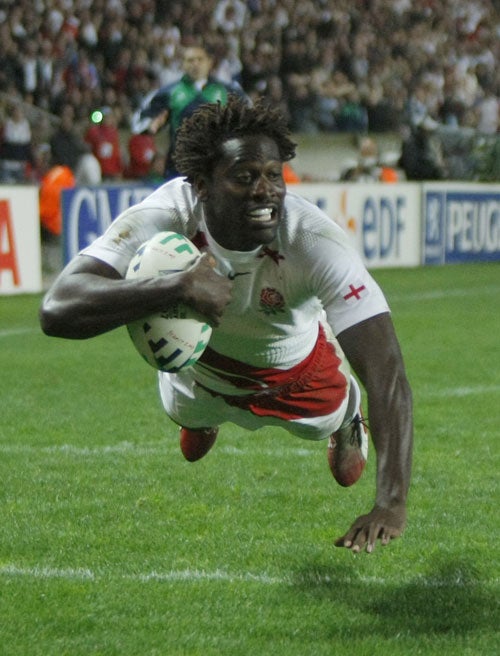Sackey's mumps give Ashton an England headache

Your support helps us to tell the story
From reproductive rights to climate change to Big Tech, The Independent is on the ground when the story is developing. Whether it's investigating the financials of Elon Musk's pro-Trump PAC or producing our latest documentary, 'The A Word', which shines a light on the American women fighting for reproductive rights, we know how important it is to parse out the facts from the messaging.
At such a critical moment in US history, we need reporters on the ground. Your donation allows us to keep sending journalists to speak to both sides of the story.
The Independent is trusted by Americans across the entire political spectrum. And unlike many other quality news outlets, we choose not to lock Americans out of our reporting and analysis with paywalls. We believe quality journalism should be available to everyone, paid for by those who can afford it.
Your support makes all the difference.Brian Ashton is hardly unfamiliar with the malign effects of illness and injury before major international matches: last summer in South Africa, he could barely put a side on the field when a virus laid waste to an already understrength squad; last October at the World Cup, he found himself confronting the Springboks without a fit outside-half to his name. The England head coach is really concerned this time, however. Not about food poisoning or twisted ankles, but about mumps.
Paul Sackey, the Wasps wing who made a name for himself with his try-scoring exploits at the global gathering in France, went down with the disease last week and missed his club's big Heineken Cup contest with Munster in Limerick. He is now in quarantine, and while he is reported to be over the worst and should be in a position to resume training next week, Ashton has no means of knowing how many of his England colleagues are about to come out in sympathy, so to speak.
All players have been blood-tested on the advice of the Health Protection Agency, as have members of the management team, and while some were declared immune, those who did not receive an immediate all-clear had to be vaccinated. While Sackey spent no time with the England squad during his incubation period, he did mix with Wasps players who were then in contact with international colleagues. "It's difficult to know what to think," Ashton said. "I just hope we don't get into Test week and find half a dozen people falling ill."
England have already lost one of their three scrum-halves, Peter Richards of London Irish, for the duration of the RBS Six Nations Championship, which the former world champions begin with an awkward match against Wales at Twickenham on Saturday week. Richards suffered a biceps injury while on club duty in Italy last weekend and has undergone surgery. Not exactly awash with alternatives – the natural first-choice No 9, Harry Ellis of Leicester, is hors de combat, as are Shaun Perry of Bristol and the uncapped Ben Foden of Sale – another London Irish player, Paul Hodgson, is the likely replacement.
There was better news about Simon Shaw. The Wasps lock failed to go the distance in Limerick after doing himself a mischief in the ankle department, but doctors said yesterday he would not require an operation. He has little chance of facing Italy a fortnight on Sunday, but there is a chance that he will return towards the end of the competition.
Yesterday's Six Nations launch was dominated by discussion of the radically remodelled French squad selected by their new coach, Marc Lievremont, who was suitably nonchalant in the face of general astonishment. "I wanted to start from scratch," explained the former flanker. "Some players had taken on bad habits, yet were systematically included in the squad." Was he aiming these remarks directly at his predecessor, the ultra-conservative Bernard Laporte? "He was my coach and I respect the man, but I am not going to be another Laporte," he replied.
So far, so encouraging, especially for those who prefer to take their French rugby with a dash of romance. But Lievremont, who admired the ruthless approach of the 1970s Beziers coach Raoul Barrière even more than he responded to the cavalier Pierre Villepreux at Toulouse, immediately scotched any notion that Les Bleus would return willy-nilly to the dashing style of old.
"I want the team to play positively and ambitiously, but I'm not a dreamer," he said. "The identity of our rugby, its culture, is different to that of the English, but this so-called French flair means nothing to me."
Join our commenting forum
Join thought-provoking conversations, follow other Independent readers and see their replies
Comments